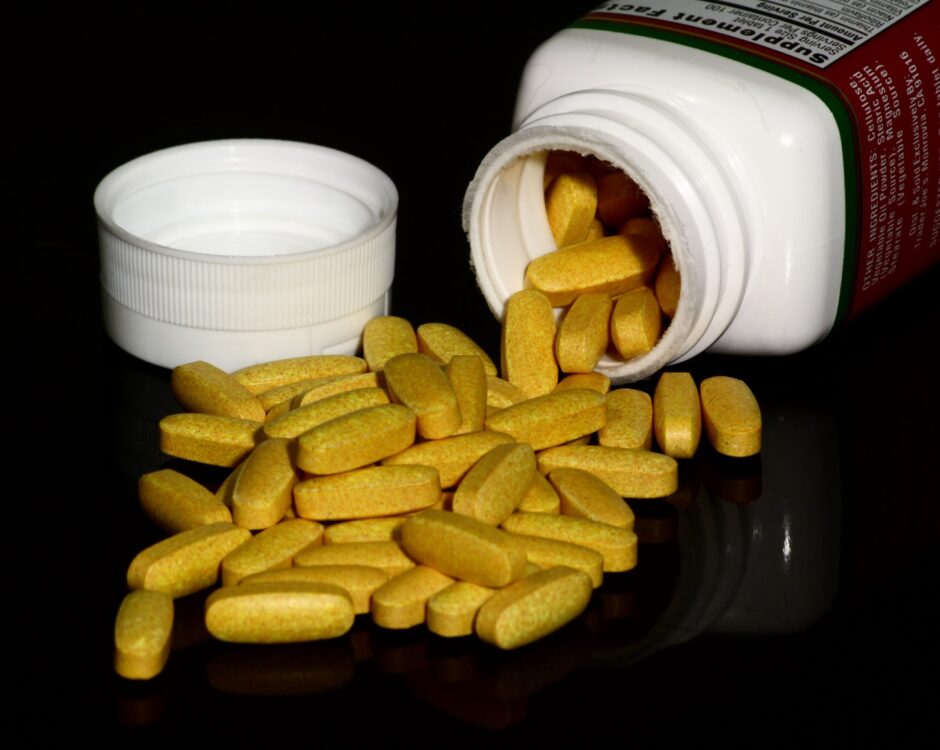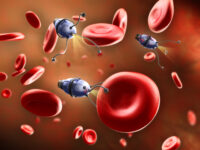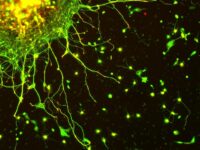Strolling through the Costco wellness aisles, you might see ginseng tea packets, ashwagandha supplements, or ayurvedic body oils. These products are created using natural medicine’s pillar belief that healing begins at the soul. Natural medicine practitioners avoid prescription pills and simply suppressing symptoms; instead, they prioritize bringing balance back to the body with alternative techniques and herbal remedies. While the ingredients in these products may seem foreign to many shoppers, most have been cultivated for centuries in Southeast and Eastern Asian communities and have slowly made their way around the globe.
These products are all created using natural medicine’s pillar belief that healing begins at the soul.
Today, growing brands like Wylde One, Recess, and Moon Juice embrace Eastern practices as a part of their wellness brand. They all advertise various infused elixirs meant to center the body and restore inner peace. In particular, the recently-launched and celebrity-backed brand Kin Euphorics adds on to this wellness chain. The company, co-founded by entrepreneur Jen Batchelor and supermodel Bella Hadid, sells drinks using ingredients in three major categories: adaptogens, nootropics, and botanics. Unlike the previously listed brands, however, Kin Euphorics avoids CBD. A tonic of pharmacology, ayurveda, and neuroscience, the plant-rich blends serve an inclusive audience. Those who cannot drink or smoke due to religion, addiction, or age turn to Kin Euphorics to make them feel “immortal,” “passionate,” and “calm.”
But is it too good to be true? Are these drinks just disguised eight-ounce cans of liquid drugs with aesthetic packaging and lofty claims?
These health drinks claim to harness all of the positive effects of alcohol, THC, and caffeine without their various side effects, such as hangovers or tolerances that could lead to addiction when over consumed.
These health drinks claim to harness all of the positive effects of alcohol, THC, and caffeine without their various side effects, such as hangovers or tolerances that could lead to addiction when over consumed.
Alcohol functions as a depressant — more specifically, an anxiolytic. It reduces anxiety by slowing neural activity through enhancing an inhibitory neurotransmitter, GABA. As for CBD, its dangers can be boiled down to the potency of the hemp plant’s psychoactive component, THC. Finally, caffeine peaks, crashes, and tapers after 68 minutes according to a 2020 study conducted at Clarkson University. This is where adaptogens step in. As a major ingredient in Kin Euphorics, adaptogens tend to increase mood and mental working capacity slowly and steadily over a longer timespan than its stimulant counterpart, caffeine.
But what are these adaptogen “substances”?
They are plants, berries, mushrooms, and herbs. Historically, adaptogens have been studied and used in World War II to improve the mental and physical performance of pilots. Dr. Nikolai Lazarev, a Soviet scientist, coined the term “adaptogen” in 1948 after studying Siberian ginseng and Schisandra chinensis. Around the same time, East Asian Nanai hunters famously grew Schisandra chinensis, colloquially called the magnolia berry or the five flavor fruit. This adaptogen was used to combat ailments such as asthma and chronic diarrhea in ancient Chinese practice. In Nanai culture, the berry increased endurance by strengthening the central nervous system. While seemingly a thing of the past, this class of substances is used by many tea companies, through ingredients like tulsi (holy basil), ginseng, ashwagandha, and more. Adaptogens have also long been used in space travel, the Olympics, and clinical studies surrounding decreasing stress symptoms.
Scientifically, adaptogens act as a stress “manager.” When a homeostatic adrenal cell is disrupted by external stressors — such as illness, radiation, and draining anxiety — signaling proteins like c-Jun N-terminal Kinase (JNK) inhibit ATP production. Without ATP pumping through the cell’s factory, machines start to malfunction. Heat shock proteins can’t repair misfolded proteins, cortisol levels are uninhibited, and as a result, a cascade ensues. However, adaptogens can stop the cascade that results from JNK inhibition. Whether the disruption is plaguing the cardiovascular, digestive, immune, or endocrine system, these neuroprotective adaptogens protect cells from factory failure.
Each “euphoric,” as Kin Euphorics calls it, contains a different stress manager. Their website lists rhodiola rosea, Schisandra chinensis, damiana, and reishi mushroom in the various elixirs. The substances are meant to make the consumer feel energized, strong, passionate, and immortal, respectively. Working alongside these plants and fungi are nootropics, the next major class of ingredients.
Nootropics (derived from the Greek “noos” for mind and “tropein” for towards) are a class of stimulant substances just like adaptogens. They primarily act as cognition enhancers boosting what is already present in the body. They can be further broken down into three categories based on use: prescribed stimulant drugs, synthetic compounds, or natural compounds: the kind used by Kin Euphorics. All this can make nootropics sound like they are simply performance enhancers, ringing the alarm bell that they’re dangerous. However, in moderate and responsible use, natural compound nootropics like L-theanine and 5-HTP can improve alpha waves in stage one sleep and boost serotonin levels, respectively. Many of the nootropics used by Kin Euphorics can be found naturally in the body or in everyday foods we eat, like meat and dairy.
When blended with the second leading ingredient, nootropics, these mystical cans supposedly awaken social energy, soothe the mind, and rebalance the circadian rhythm. But what can the skeptics make of this? The difference is that these adaptogens, nootropics, and botanics have either chemically safer or less potent chemical components compared to that of typical hallucinogens and psychedelics.
For Kin Euphorics, the design of the drinks and selective list of the ingredients ensure that consumers will not become addicted, though each individual response may vary from the intended feeling.
The reishi mushroom, an adaptogen used by Kin Euphorics, is a substance commonly dismissed due to its physical resemblance to psilocybin, or shrooms. Reishi have a rich history dating back to the Han Dynasty and the scrolls of Taoism in China. The wealthy and noble citizens used these mushrooms to boost the immune system and strengthen cardiac function. Additionally, they are attributed with anti-aging properties and enhancing memory through their effects on white blood cells. These sound almost faultless despite the fact that, like the drink they’re blended in, they are not FDA approved due to lack of research. Known as “lingzhi” in China and “reishi” in Japan, these are the “mushrooms of immortality,” providing good health without the hallucinations of extreme psilocybin intake. For Kin Euphorics, the design of the drinks and selective list of the ingredients ensure that consumers will not become addicted, though each individual response may vary from the intended feeling.
Is this resurgent wave of herbal medicine an indicator that it’s time to revert back to these traditional healing methods? These mood modulating, anti-fatigue, restoring ingredients are not only used in supplements and drinks; they also appear in hair oils, body oils, topical treatments, and even assist in cancer therapy. But could they be more? Similar adaptogenic-based drinks are appearing in farmers markets, Whole Foods, and even Urban Outfitters. While gaining popularity, do consumers know what is inside? Would they endorse the products if they did know? Unaware of the history and science behind these drinks, many people are skeptical of natural science and its lofty claims. After the Industrial Revolution, holistic health disappeared from the medical headlines, only present in passed-down family tradition. Kin Euphorics isn’t solely responsible for what could be a shift towards trusting natural medicine; however, they take part in a larger wave of these alternative wellness companies and products. For the people that get put down by wine, paranoid by CBD, and jittery by pure caffeine, these kinds of drinks serve a larger, more inclusive audience regardless of the possible medical impact.
Sources:
Pharmaceuticals (2010). DOI: 10.3390/ph3010188
Nutrients (2020). DOI: 10.3390/nu12071922
Image courtesy of Wikimedia Commons





